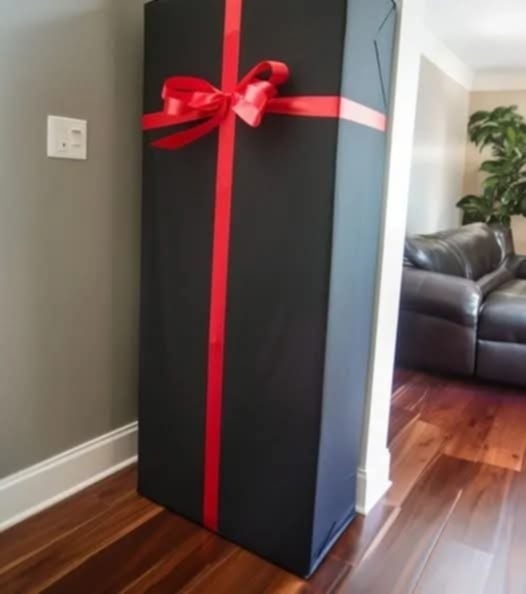After that, Mom worked hard to keep life steady. She took a job as an elementary school teacher and gave me everything she could. I’ll always be grateful for that.
My dad, on the other hand, slowly faded out of the picture. He wasn’t mean or angry—just distant. Most weekends, he went fishing with friends, even on days I was supposed to visit. Still, I kept hoping he’d come around. I tried to win his attention, hoping he’d notice me. Be proud of me. Want to spend time with me.
Then came my 18th birthday.
Mom planned a small party—just close friends, homemade decorations, and the guitar I’d been dreaming of. She really went all out. I also texted my dad about it. His response was short but promising: “Sounds great! I’ll try to be there.”
So, I waited.
Friends arrived. Laughter filled the house. But still, no sign of Dad. As the hours passed, I checked my phone over and over, hoping for a message.
Finally, I called him.
I could hear water and voices in the background. He answered casually:
“Oh right—happy birthday! I’m out on the lake with the guys. I’ll catch you later, okay?”
I hung up, went to my room, and tried not to cry. But I couldn’t hold it in.
Mom came and sat beside me. “I’m sorry, honey. You know how he is.”
“I know,” I said softly.
For days after, I felt invisible. I smiled through it, but inside I was hurting. I kept wondering why I still tried.
A week later, Dad called like nothing had happened. “Hey, I got you a gift. Want to come get it?”
Part of me wanted to say no. But another part of me—still hopeful—said yes.
When I got there, he handed me a long, wrapped package. I opened it slowly.
A fishing rod.
I tried to smile. “Thanks… it’s great.”
He grinned. “We can go fishing next weekend!”
But I knew I couldn’t keep pretending.
“I can’t,” I told him. “I’ve got plans with Mom.”
He paused, then said, “No worries. We’ll find another time.”
But I knew we wouldn’t. And for the first time, I was okay with that.
As I walked home, fishing rod in hand, I realized I didn’t need to keep chasing someone who wasn’t willing to show up. I had people in my life who were there—my mom, my friends, and more importantly, me.
In the months that followed, I focused on what truly mattered. I poured myself into music, helped my mom more around the house, and spent time with the people who made me feel seen and valued.
One evening, while washing dishes with Mom, she asked, “Have you heard from your father?”
I shook my head. “No. But it’s okay. I’m done waiting.”
She looked at me, a little sad, but proud.
“I always hoped…”
“I know,” I said. “But I’ve got you. And that’s enough.”
That fishing rod still sits untouched in the back of my closet. Not as a symbol of rejection, but as a reminder: sometimes, people don’t become the parents we hoped for—but that doesn’t mean we’re any less worthy of love.
Sometimes, the greatest gift we can give ourselves… is letting go.

